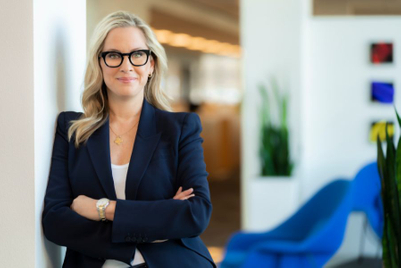
Without a doubt, the Covid-19-induced pandemic is the defining event of our time. On a personal level, we are all touched by its enormous human toll. On a business level, the crisis has upended even the most rigorously formed plans.
With normalcy shattered in every industry and once-predictable customer behaviour now inestimable, it is clear that marketing leaders need to draw on their judgment to make pivots. Using woefully imperfect data and tapping into deep reservoirs of creativity, chief marketing officers are establishing alternative paths and practising empathy to inspire team commitment.
To better comprehend the current landscape and illuminate the road ahead, we at Siegel & Gale turned to our community of CMOs. Our latest study, In their words: CMOs on navigating Covid-19, provides an exclusive oral history of how 26 global CMOs processed Covid-19.
These leaders shared their insights into what it has been like living and working over the past several months. The decisions made by these CMOs are characterised by tremendous tension – protecting employees’ safety and revenues, supporting the community and keeping the enterprise healthy, being distinct from other brands while aligning with people’s shifting concerns and behaviours.
In speaking with these marketing leaders, we found no evidence of any compare-and-despair mentality. Instead, anchored in a clear sense of brand purpose, and buoyed by agility and an empathetic mindset, these CMOs disengaged from marketing goals that were no longer meaningful, cultivated alignment across their organisations and unleashed dramatic productivity, remarkable optimism and undaunting resolve.
Here are seven of the top themes.
Empathy
All companies focused on the human impact on employees, customers and the community. By demonstrating solidarity and encouraging collective resilience, these CMOs created the conditions where empathy was prioritised.
“Customer needs are more important than ever. And customer needs are changing. So we've already adapted a number of our products and services to meet emerging or current customer needs.”
—Pete Markey, TSB
Purpose
Many CMOs reported that brand purpose was central in enabling them to respond quickly and effectively. It served as the glue across all employees to contextualise their role in this crisis and rally them in difficult situations. As a result, organisations have a renewed understanding of the power of purpose and its impact on the business, as well as the possibility for a brand to behave as an engaged citizen in the community.
“Internally, people are really resonating with our purpose. They feel proud to be able to do something that before was just a job. Right now, they know they have a purpose to deliver something to the community.”
—Khaled Ismail, Tetra Pak
Simplicity
The respondents realised that they needed to reduce the cognitive effort required of customers and employees to interact with their brands. While the early ads that showcased brands and employees as helping were deemed inspiring, CMOs reported awareness of a danger of “empathy-washing”.
They also underlined the needs for clear, authentic and useful communications. Internally, CMOs emphasised the power of simplicity during meetings, with a need for increased efficiency while employees worked remotely.
“I think the simplicity in communication and messaging at this time is really critical.”
—Soyoung Kang, Eos
Communications
Marketing leaders have been key to understanding shifting customer and community needs, and protecting the business for the longer term. Teams dramatically increased the frequency of communication, standing up content in a shorter timeframe than they had ever thought possible. Existing content was reviewed and a lot of it was paused or pulled. Channel strategies were revised, moving from event and out-of-home to digital.
Seamless collaboration across functions was required, especially with product, operations and marketing teams. CMOs have been continually balancing the need to creating inspirational campaigns with useful or informational content. The Guinness ad “We’ll march again" (pictured, top) is noteworthy for its inspirational quality.
“We just thought 'How do we get this inspiring message out?’, where essentially our biggest day of the year (St Patrick's Day) was lost. And the biggest day for all our pub partners. One is resilience and positivity. This is the hand we've been dealt – make the most of it for ourselves, our partners and for everyone.”
—Ed Pilkington, Diageo
Teamwork
The ability to handle the crisis has led to greater pride and stronger engagement across marketing organisations. Despite the distancing, all have developed closer relationships with colleagues. Decisions needed to be made faster and integrated across functions, with less tolerance for office politics.
"You really are testing people's resilience and human characteristics."
—Alicia Tillman, SAP
Experience
Consumers seeking comfort in an uncertain situation were seen gravitating to brands they knew and trusted rather than newer entrants. Brands that had weathered previous crises had the benefit of knowledge, processes and systems to make the communication transitions more seamless. Global brands observed how the situation unfolded across geographies, which enabled them to be more prepared.
“You've constantly got to balance your existing customer needs, what new customers might want, [and] also looking after your people.”
—Mick Doran, Sainsbury's Bank
Reset
CMOs have begun to transition from focusing on responding to the crisis to resetting to propel business continuity and, in many cases, transformation. While uncertainty still reigns, all are scenario-planning for the “next normal”.
A troubling question, especially for business-to-business marketers, is in-person events, with many struggling to replace the quality of leads generated by live events. There is a recognition among all CMOs that the crisis is not inducing a temporary interruption that must be survived to return to life pre-pandemic. Instead, it is viewed as opening the door to a new future.
“We're also looking at what our customers are going to need when we come out of this and how we can be best-positioned to support them.”
—Jennifer Temple, Hewlett Packard Enterprise
While the pandemic has ushered in immense uncertainty, it’s clear to CMOs that this is a time when brands can build great amounts of brand equity and employee loyalty when they are attuned to how people are thinking and feeling.
Margaret Molloy is global chief marketing officer at Siegel+Gale









.jpg&h=268&w=401&q=100&v=20250320&c=1)